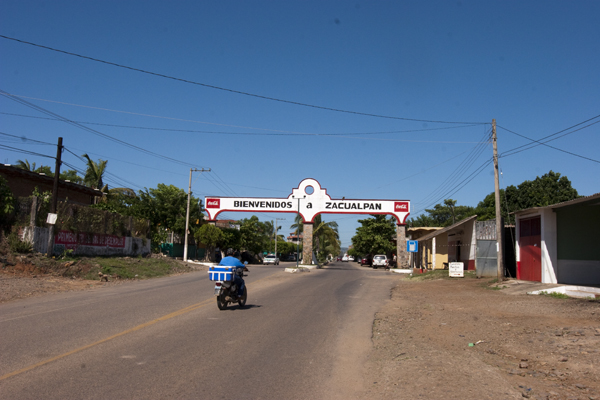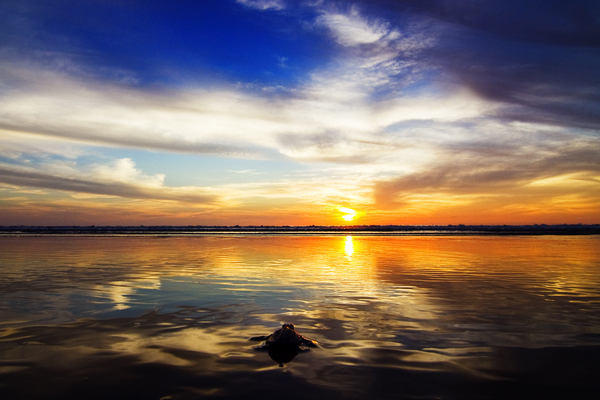This morning, after a bit of a late start, we headed back towards Puerto Vallarta via convoy with me leading in the injured Blue Whale and the Fletcher clan following in a rented SUV. The idea was that if the brakes failed on the Blue Whale and I went careening off the side of the highway into a banana tree, Chris would install one of those simple wooden cross markers you see along the highway everywhere in Mexico and maybe even alert the Federales, assuming they weren’t late getting to the airport.
We inched our way through Zacualpan, which has so many topos or speedbumps, most of which you don’t discover until you’ve flown over them, that on the arch welcoming people into town they should add a legend that says something like, “Zacualpan, la pequeña ciudad de un millón de topos”—the little town of a million speedbumps.
By the time we got to Las Varas, the last town before turning on to the highway, the brakes on the Blue Whale were completely gone. Well, what are you going to do? Unfortunately, my autoclub insurance doesn’t extend down to Puerto Vallarta. I could have pulled over and waited for the Fletchers but I knew their SUV was already loaded to the gills and I wasn’t at all certain that Chris’ mom, Sally, would really enjoy having me sit on her lap for the next hour or so, particularly since her hip was bothering her. So the logical thing seemed to be to just carry on and hope that as I guided the Blue Whale through the torturous windy jungle road where every Mexican driver’s favorite pastime seems to be playing “chicken” with the endless string of cars and Coca-Cola trucks careening around blind curves that I would simply never have to use my brakes.
Now the normal person can hold their breath for a minute, maybe two tops, but I’ve read about these free-divers who can actually hold their breath for eight or nine minutes while diving down hundreds of feet. Child’s play. While driving through the jungle in the Blue Whale I held my breath for at least 45 minutes.
When we finally came out of the jungle near the Punta Mita turnoff where the road opens up to two-lanes in either direction, I took my foot off the gas and just let the Blue Whale slowly coast to a stop along the side of the road. A few minutes later, the Fletchers pulled up behind me.
“Hey, you made it no problem!” Chris said.
Actually, I told him, I did the whole drive without any brakes. And now I thought it best to just continue on into Bucerias and go to Gecko, where they’d rented their SUV and where their mechanic had worked on the Blue Whale before.
“How are you going to get there?” Chris asked.
I’ll drive, I told him. Slowly. Right behind you. So that if I get in trouble, I can at least crash into your rented SUV. So off we limped. To beach the Blue Whale in Bucerias.



Recent Comments